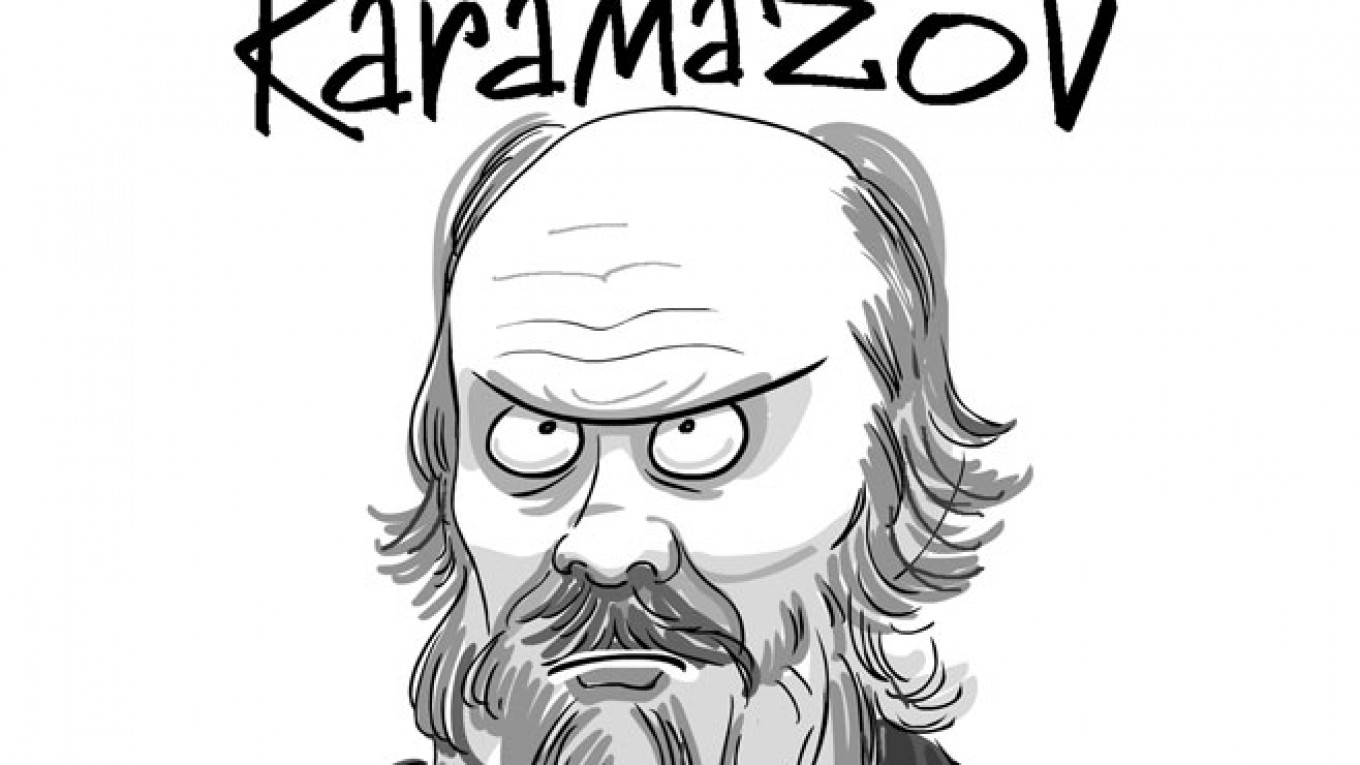I have no idea how the situation with South Stream gas pipeline will end.
Of course, I understand the logic behind what happened. I am not talking about recent events — those are clear enough. Bulgaria was subjected to outside pressure, causing it to back out of the South Stream project.
It is clear who applied the pressure and why they did it. Only the most naive observer could fail to see the connection between the recent visit by U.S. senators and the subsequent announcement by Bulgarian Prime Minister Plamen Oresharski concerning South Stream.
No, I am referring to the predictability of Bulgaria's decision to backtrack. Bulgaria has been backtracking like that for centuries. Russia's Bulgarian brothers — its "bros" over there in Sofia — have, to put it mildly, sold Moscow down the river on several occasions in history.
Each time Bulgaria's actions show its older brother that all of Russia's sacrifices in the name of Slavophilia are nothing but ineradicable Dostoevsky-like mental complexes that have nothing to do with real politics and real Russian interests. Just recall how many Russian lives have been lost for the sake of Bulgarians, Serbs, Czechs, Slovenes and Montenegrins — and how pointless all of that looks today.
In fact, insightful people of the time did realize the folly of such policies. During the latest in a series of Balkan wars in 1877-1878, old Prince Pyotr Vyazemsky — who had two horses shot out from under him at the battle of Borodino in the war against Napoleon — condemned Russia's desire to interfere in yet another war with Turkey.
He wrote, "Those wonderful Serbs! Russia shook off the Tatar yoke — and later Napoleon's — with its own hands, and without whimpering and begging for help from its neighbors. Is it possible that we, with our bodies and blood, should sacrifice our future well-being so that Serbs can prosper? Serbs are Serbs and Russians are Russians. That is the main mistake, our main misconception — that we consider ourselves more Slavs than Russian. Russian blood is only secondary, while the love of all things Slavic takes precedence."
Wise people in later epochs made similar observations. General Mikhail Skobelev, the liberator of Bulgaria, once bitterly remarked that "Only Russia can afford such a luxury — to fight out of a sense of compassion."
Perhaps the most appropriate term for this phenomenon is dostoevshchina meaning "like the heroes of Dostoevsky's novels." This refers to someone who selflessly rescues others, despite knowing they will receive no thanks, and possibly only curses, for their trouble.
Allow me to quote Dostoevsky: "Russia never will have and never has had anyone who can hate, envy, slander and even display open enmity toward her as much as all these Slavic tribes will the moment Russia liberates them and Europe agrees to recognize their liberation!"
"And you needn't … shout that I am exaggerating and that I hate the Slavs! On the contrary, I have great love for the Slavs! …They will certainly begin by … announcing and convincing themselves that they do not owe Russia the least gratitude; on the contrary, that they barely escaped Russia's love of power by signing a peace agreement with the intervention of the European concert of powers."
Here, the pragmatic foreigner can only throw up his hands and marvel at the "mysterious Russian soul." It is difficult to understand how Dostoevsky could simultaneously feel a sincere love for the Slavs and a sense of disgust towards those ungrateful "brothers." But that's what makes him Dostoevsky.
Ordinary Russians have an easier way to solve this problem: they simply strike those unpleasant episodes of history from their memory — for example, the fact that Bulgaria fought against Russia in both the first and second world wars.
Few people remember that interesting bit of trivia. And if you happen to remind them of this "inconvenient truth," they will immediately dismiss you, as if waving away a pesky fly, and say, "So our younger brothers misbehaved a little. Life is like that sometimes!"
Perhaps it is this endlessly all-forgiving attitude that prompts our Slavic brothers to repeatedly and openly "reject" Russia. Meanwhile, the dialogue between Moscow and Sofia, Belgrade and Prague often resembles that between two brothers in the book "Cloud Atlas."
"Don't you have a conscience?" the offended one exclaims. "We're brothers, after all!"
"A couple of pills and a gin and tonic will help me forget that unfortunate fact," the other coolly replies.
Russia's relations with its Slavic neighbors frequently winds up on a similar note.
The situation with South Stream differs from others and is complicated by the fact that Bulgaria also has an interest in the flow of Russian natural gas. Of course, Sofia wants to please Washington, but it cannot ride out the winter with no heat.
So, either a new "older stepbrother" will help Sofia, which seems unlikely, or else Bulgaria will have to reluctantly and, if only temporarily, make peace with its blood relative. Later, Moscow will open its arms to them again. That is what it means to be brothers!
But Lord, do we have a lot of such brothers! God help us! However, we are the ones to blame for befriending so many.
Many of our "brothers" have sought European Union and NATO membership and some have even joined the sanctions against Russia. Of course, they have the right to participate in the "European concert of powers" led by the U.S. maestro. And of course, they will never make first violin in that orchestra, but they might be entrusted to ring the triangle now and then.
It is only right that Russia finally settle down and start thinking about its own interests. In fact, it is not only right but vitally essential that it do so: The Russian people have been waiting for it a long time.
And by the way, most Russians are also Slavs, so Moscow leaders might try expressing a little love for them as well.
Pyotr Romanov is a journalist and historian.
A Message from The Moscow Times:
Dear readers,
We are facing unprecedented challenges. Russia's Prosecutor General's Office has designated The Moscow Times as an "undesirable" organization, criminalizing our work and putting our staff at risk of prosecution. This follows our earlier unjust labeling as a "foreign agent."
These actions are direct attempts to silence independent journalism in Russia. The authorities claim our work "discredits the decisions of the Russian leadership." We see things differently: we strive to provide accurate, unbiased reporting on Russia.
We, the journalists of The Moscow Times, refuse to be silenced. But to continue our work, we need your help.
Your support, no matter how small, makes a world of difference. If you can, please support us monthly starting from just $2. It's quick to set up, and every contribution makes a significant impact.
By supporting The Moscow Times, you're defending open, independent journalism in the face of repression. Thank you for standing with us.
Remind me later.






